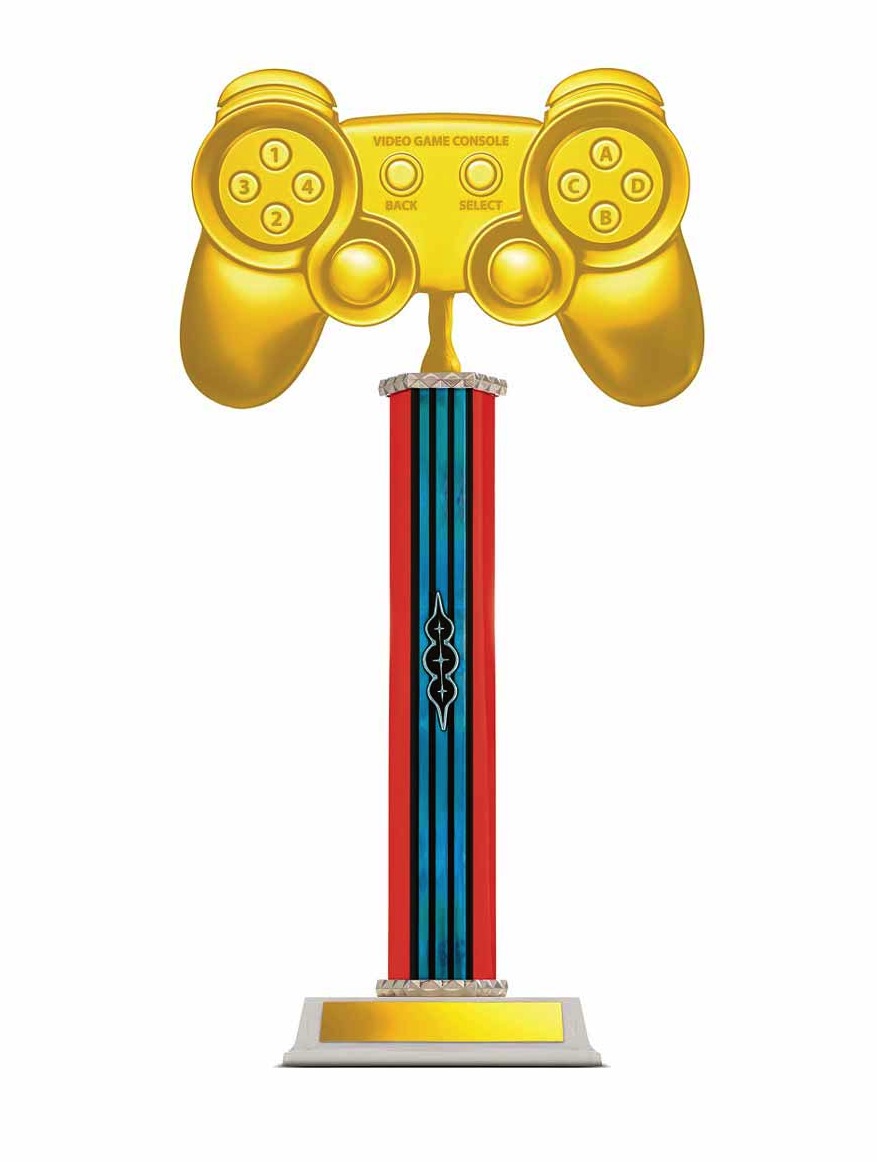
Correction appended, June 30, 2014
In the most disastrous social and economic decision of my life, I decided in the 10th grade to stop being a nerd. I quit programming computers, going to laser tag, organizing Dungeons & Dragons campaigns, reading science fiction and playing video games. This is particularly painful now that I know there’s a video-game league in which full-time professional players compete in front of thousands of cheering fans. My mom used to yell at me for wasting time playing video games. I don’t know what she would have done if she’d caught me wasting time watching other people play video games.
To see what I missed by squandering my teen years getting drunk and having sex, I went to the Major League Gaming championship at the Anaheim Convention Center. I entered a hall packed with about 5,000 people, several of whom were women. Each of these mostly teen and 20-something fans had paid at least $50 per ticket, and many were wearing the jersey of their favorite team. I found myself wishing that 15 years ago, when people still read things, I had thought of charging people to watch me write.
I asked Mike Sepso, 42, who co-founded Major League Gaming in 2002, why I only recently found out that video games were a spectator sport, considering the fact that 18,000 spectators attended the weekend event, about 2 million watched it online, and Sepso is currently building a 15,000-seat stadium in China. Many of the players, and some of the attendees, make their living off YouTube channels or live streams where they show themselves playing games while they give commentary. Sweden’s PewDiePie, who just makes jokes while he plays games, has the most-subscribed-to channel on YouTube, and the Wall Street Journal estimated his ad income at $4 million a year. Imagine how much more he’d make if he changed his name to anything other than PewDiePie.
Sepso politely explained that I hadn’t known about this because I was nearing the end of the average human life span. “Zero of the people here have ever read a magazine,” he said. “They don’t own TVs. There’s a lot of things they do that you don’t know about.” I am guessing that none of those things involve moving their bodies.
The room looked like a UFC fight, with small blue spotlights rotating in the faces of announcers who did play-by-play onstage, getting makeup applied during breaks. The players sat behind soundproof glass so they couldn’t hear the announcers, but fans still chanted their names, so unfamiliar were they with how physical human interaction works. There were four video-game tournaments going on simultaneously, but the most people were packed into the seats watching Call of Duty. A dozen professional photographers pushed against the railing to take pictures of guys holding controllers. The Evil Geniuses, hated by the crowd for their cockiness, had been upset a few weeks earlier by OpTic Gaming at the X Games, where its players got the same medals as skateboarders and mountain bikers. It must be weird to be the world’s best skateboarder and have it be considered the same level of accomplishment as the person who is the best skateboard-video-game player.
Scump, one of the OpTic Gaming players, was being cheered on by his mom Kristen Abner, who told me that when her son quit baseball and football at 14 to devote himself to Call of Duty, she took him to a doctor to see if he was depressed. By the time he graduated from high school and told her he was skipping college to go pro, she understood. “He had a great opportunity with OpTic Gaming he couldn’t pass up,” she explained. Scump’s father had played professional baseball, so I asked her which sport was more boring to sit through. “Oh, baseball,” she said immediately. “This is exciting.”
It kind of was. One of the commentators sat next to me to explain what was going on, which was various versions of “They’re shooting each other.” Still, even though I was just staring at the barrel of a gun for an hour, I found myself rooting for the Evil Geniuses and their smile-free professionalism. And I remembered that, back in middle school when I spent a lot of time in arcades, people would sometimes gather around the Ms. Pac-Man machine when I was playing. I suppose there are lots of things people pay to watch others do that don’t seem entertaining: eat large quantities of hot dogs, read aloud, yell at fellow Real Housewives.
Eventually, the Evil Geniuses prevailed, winning $25,000. As I left, I stopped a group of fans and asked them if all the kids in their high school were into this. “I’d say 1 out of 30 kids would know gaming,” said Matthew Wells, 14, who seemed to totally know what Time magazine is. Kids haven’t changed; it’s just that now each group can have its own world, with micro-celebrities, micro-economies and micro-gatherings. I just hope someone builds one quickly for humor columnists.
Correction: The original version of this story misspelled Mike Sepso’s last name.
More Must-Reads From TIME
- The 100 Most Influential People of 2024
- Coco Gauff Is Playing for Herself Now
- Scenes From Pro-Palestinian Encampments Across U.S. Universities
- 6 Compliments That Land Every Time
- If You're Dating Right Now , You're Brave: Column
- The AI That Could Heal a Divided Internet
- Fallout Is a Brilliant Model for the Future of Video Game Adaptations
- Want Weekly Recs on What to Watch, Read, and More? Sign Up for Worth Your Time
Contact us at letters@time.com